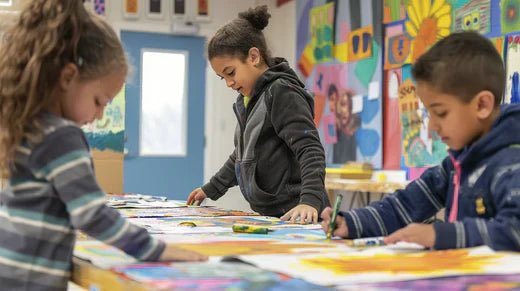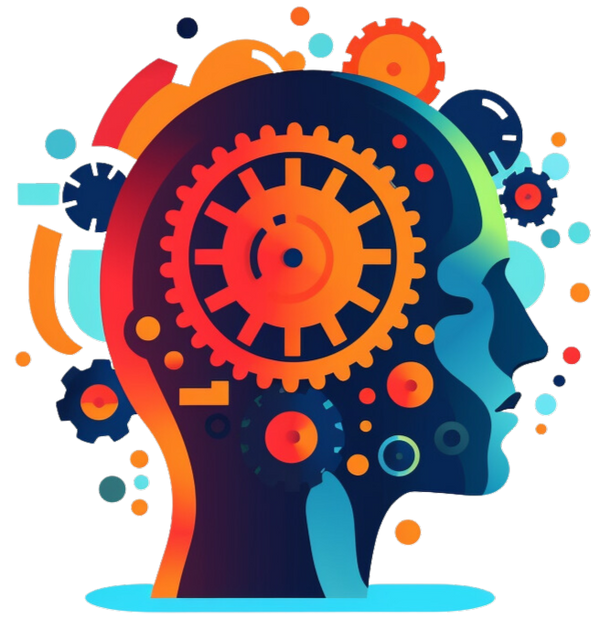
Support for children with ADHD: Focus on special education
Share
Children with ADHD need structure, understanding, and targeted support. Special education offers effective approaches to develop their strengths.
From this overview, select the chapters that interest you most. At the bottom, you'll find links to advice centers and useful downloads.
1. Basics of special education
Special education aims to provide targeted support to children with special needs and support their development in a brain-friendly manner. In everyday life, this means, for example, creating individualized learning plans, conducting playful exercises to promote motor skills, and using specific communication aids such as picture cards .

These methods help children better cope with everyday challenges and gradually develop their skills without being held back by weaknesses such as distractibility or excessive impulsiveness.
Remedial education creates individualized learning and development conditions tailored to the needs of each child. Unlike special education, it pursues an integrative approach to support children with and without developmental disabilities. A central concern is to develop the potential of children with neurodiversity disorders such as ADHD or autism . A variety of methods help overcome barriers and build on strengths.

2. ADHD: Basics and Diagnostics
ADHD (formerly known as attention-deficit/hyperactivity disorder) is a neurobiological disorder (neurodivergence) characterized by inattention in everyday life, hyperactivity/internal nervousness, and high impulsivity. A practical example: An eight-year-old child often has difficulty concentrating on a task for more than 10 minutes in class. Instead, he starts talking to his neighbor, stands up, or disrupts the class.
With the help of targeted special education interventions such as clear work instructions and short breaks, the child can learn to gradually improve their ability to concentrate. For example, more engaging learning materials are used, a task is performed outdoors, or feedback is requested from the child at shorter intervals.
The causes of ADHD are diverse and include genetic, neurobiological, and psychosocial factors. Studies show that an imbalance in neurotransmitter regulation in the brain plays a central role. A clear, reliable ADHD diagnosis requires comprehensive medical histories, standardized tests, and observations of everyday life. These examinations are conducted by specialists such as child and adolescent psychiatrists or special education teachers.

3. Special education approaches and support in everyday life
Special education approaches focus on holistic and individualized support to help children with ADHD in their everyday lives. This includes behavioral therapy measures that teach children to control and integrate their impulses and develop self-regulatory strategies. Units such as relaxation exercises and mindfulness training have a calming effect and promote inner balance.
An important component of support is structuring aids such as visual timers , daily schedules , and checklists . These tools provide children with orientation and make it easier to complete everyday tasks. Play therapy and creative approaches offer children the space to express their strong emotions and develop social skills in a playful way.
Parents and teachers together play a crucial role in a child's development. Special education teachers advise you as parents and support you in creating a supportive learning environment for your child. Clear routines and fixed daily structures provide daily security and a reliable framework. In addition, special education teachers also specifically promote children's social skills and help them resolve conflicts as non-violently as possible and deal with emotional challenges.

4. Didactic strategies for children with ADHD
Children with ADHD benefit from specific teaching strategies in the school context. One proven method is the use of clearly structured work phases with fixed time limits, supplemented by short breaks for movement. The use of visual aids such as color-coded tasks or 3D learning materials (multisensory: engaging various senses) also helps to focus attention and make complex content easier to understand.
Individualized development plans and goal-setting ensure that children learn at their own pace. Praise and small rewards motivate and build self-confidence.

5. Challenges in ADHD treatment
Children with ADHD often face prejudice and stigma. Their behaviors are often perceived as disruptive or maladaptive. Special education teachers focus on education to promote general understanding and reduce prejudice. They also emphasize the children's strengths and individual abilities.
When dealing with ADHD, comorbidities such as anxiety disorders, depression, or learning disabilities often complicate treatment . Close collaboration between professionals, teachers, and families is therefore crucial to achieving sustainable progress. It's like a triangle: All three sides must meet/connect at three points.

6. Research and further development
Research in the field of ADHD and special education approaches is continually advancing. A recent study from the University of Zurich shows that multisensory learning methods can significantly improve concentration in children with ADHD. International research also demonstrates that neurofeedback-based interventions deliver promising results in improving self-regulation.
A new, promising area is digital technologies, such as learning apps or games that promote concentration and make learning fun for children. Future approaches could include even more personalized support programs or interactive learning platforms, as well as virtual reality (VR) – for cases where outdoor exercise isn't possible, for example.

7. Resources and further information
7.1 Specialist literature and articles
- Recommendations for children with ADHD : A practical brochure from the ZHAW. ( Download here )
7.2 Online platforms and self-help groups
-
elpos Switzerland : ADHD organization with counseling and group programs. ( elpos.ch )
- ADHD 20+ : Swiss information and advice center for adults with ADHD ( adhs20plus.ch )
-
ADHD / ADD Switzerland Association : Support and events for those affected and their families. ( adhs-ads-schweiz.ch )
- Self-Help Switzerland : Provides self-help groups for ADHD in Switzerland. ( selbsthilfeschweiz.ch )

7.3 Continuing education and training opportunities for special education teachers
- ADHD Help : Workshops and courses on dealing with ADHD. ( adhs-hilfe.ch )
- adhs20+ : Consultations and continuing education in Switzerland. ( adhs20plus.ch/wb )
7.4 Digital tools and apps
- MindNode : Mind mapping tool for structuring thoughts.
- GOSSIK : Digital support for people with ADHD (Swiss startup)
- Time Timer : Visual timer app that helps children with ADHD manage time better.
- Kahoot! : Interactive learning platform to promote attention and motivation.
